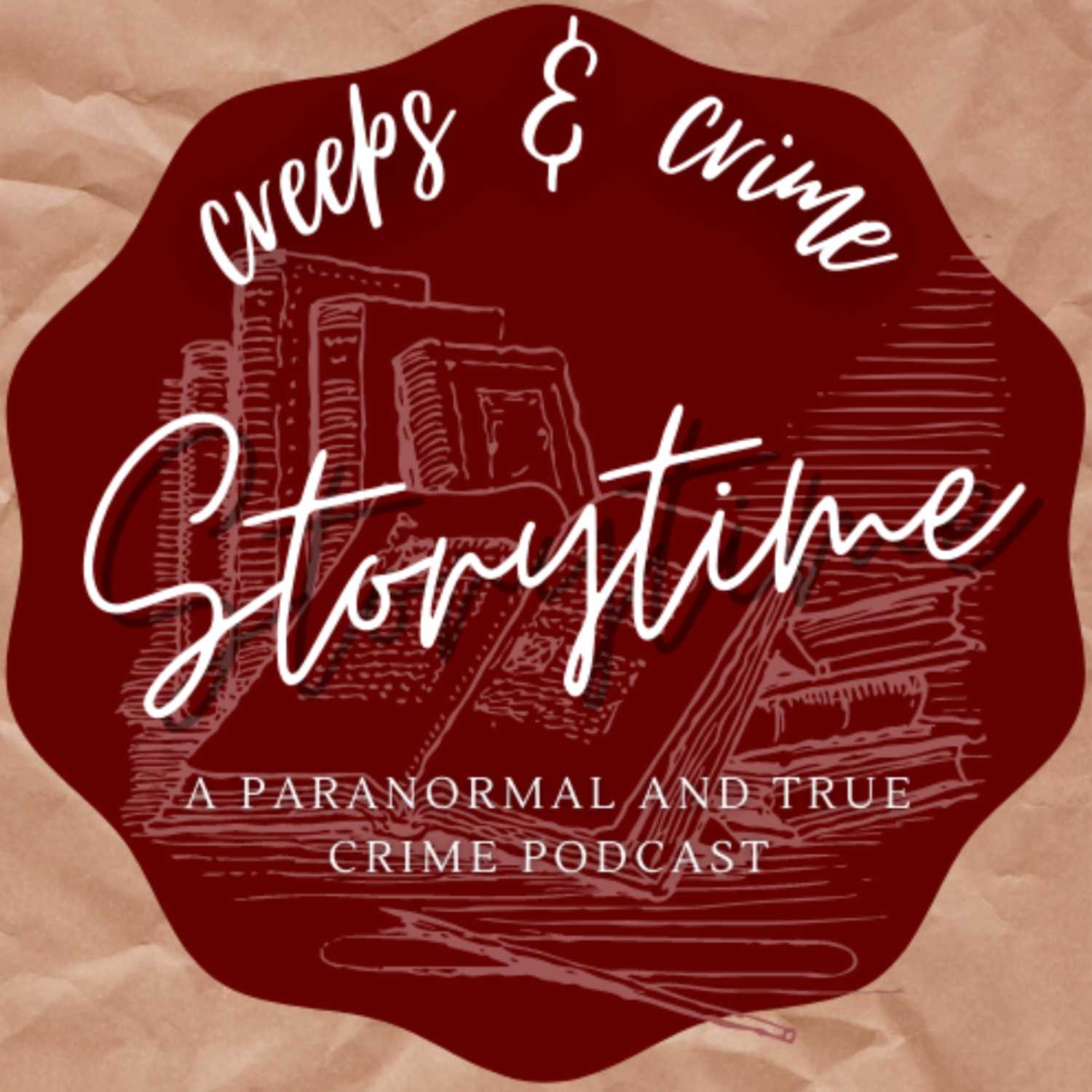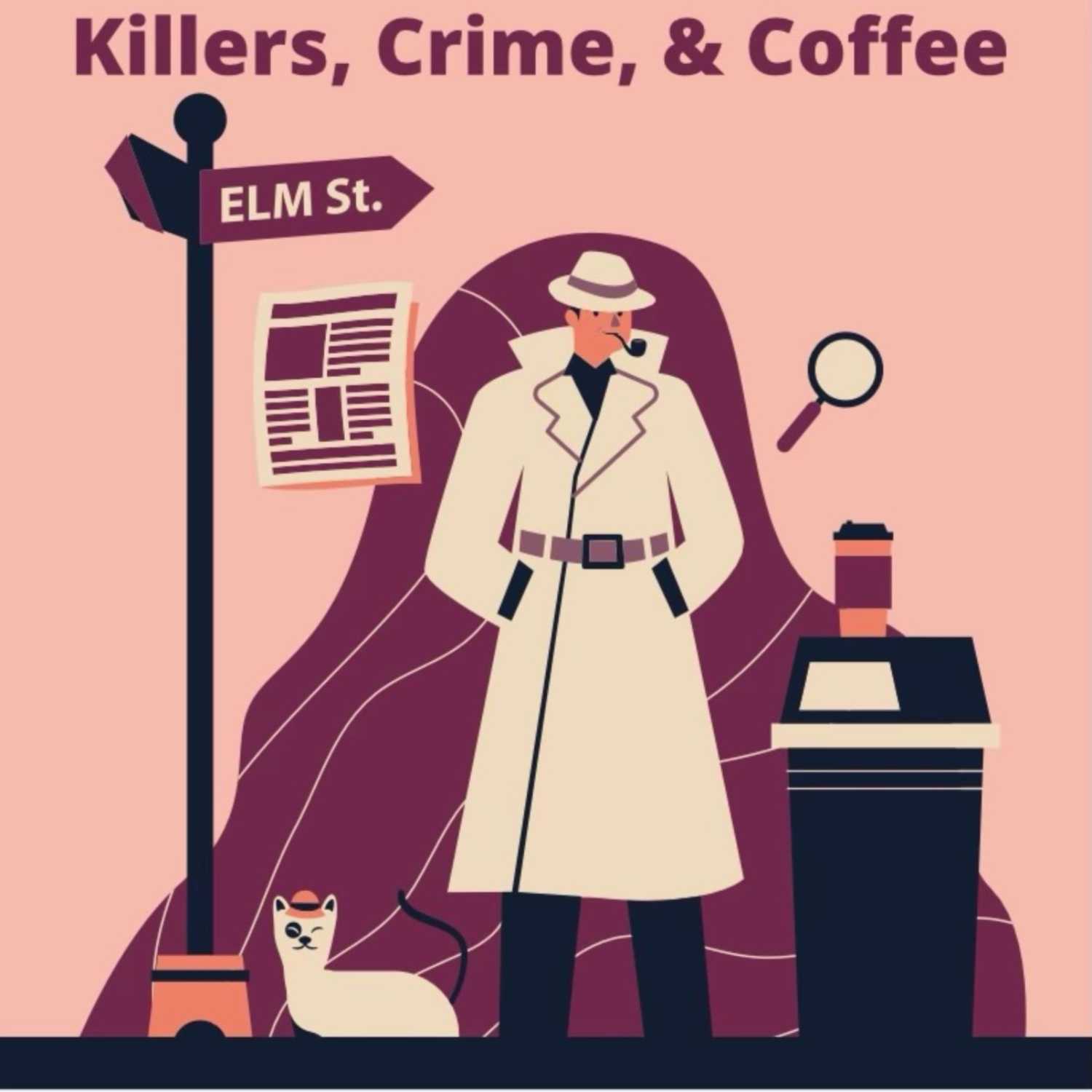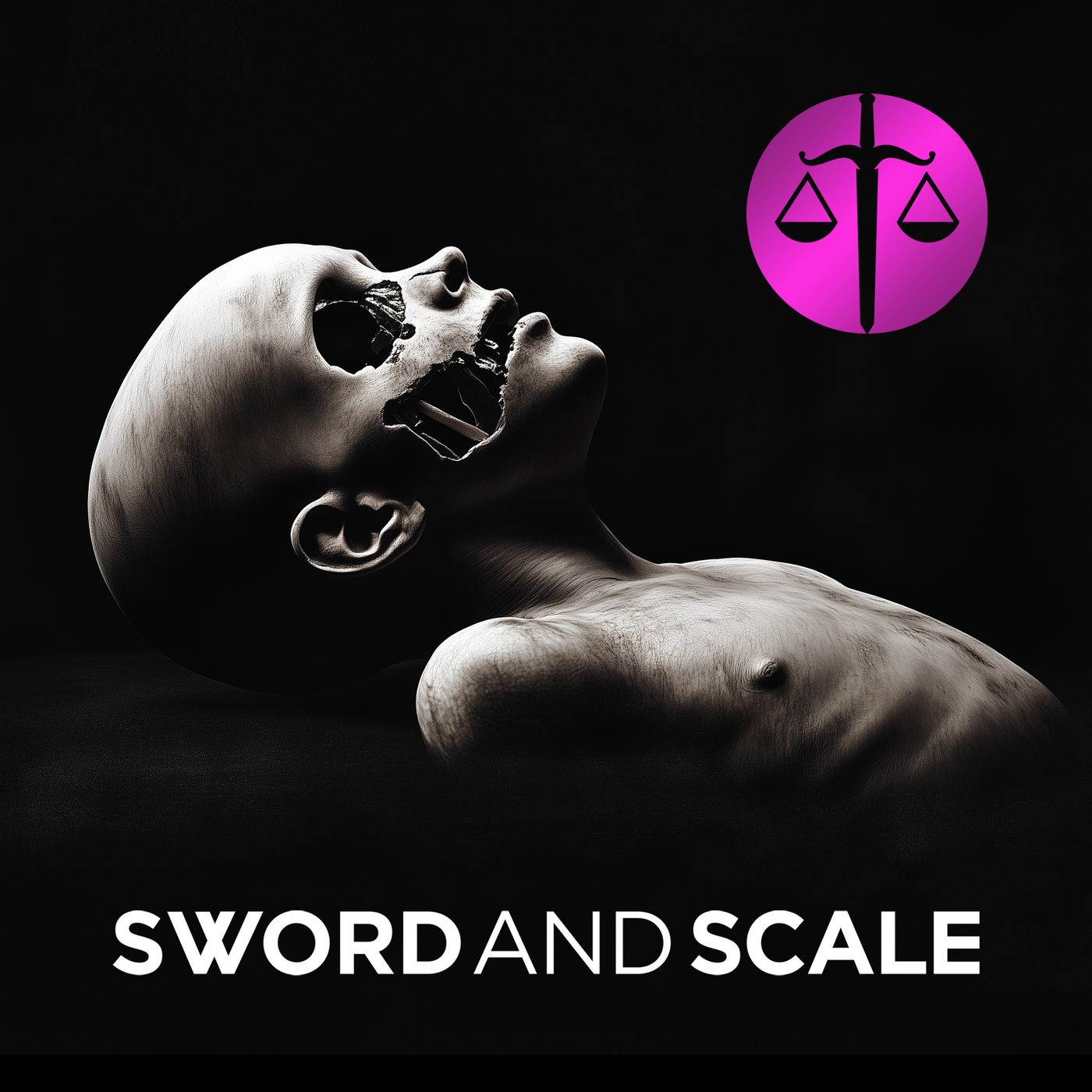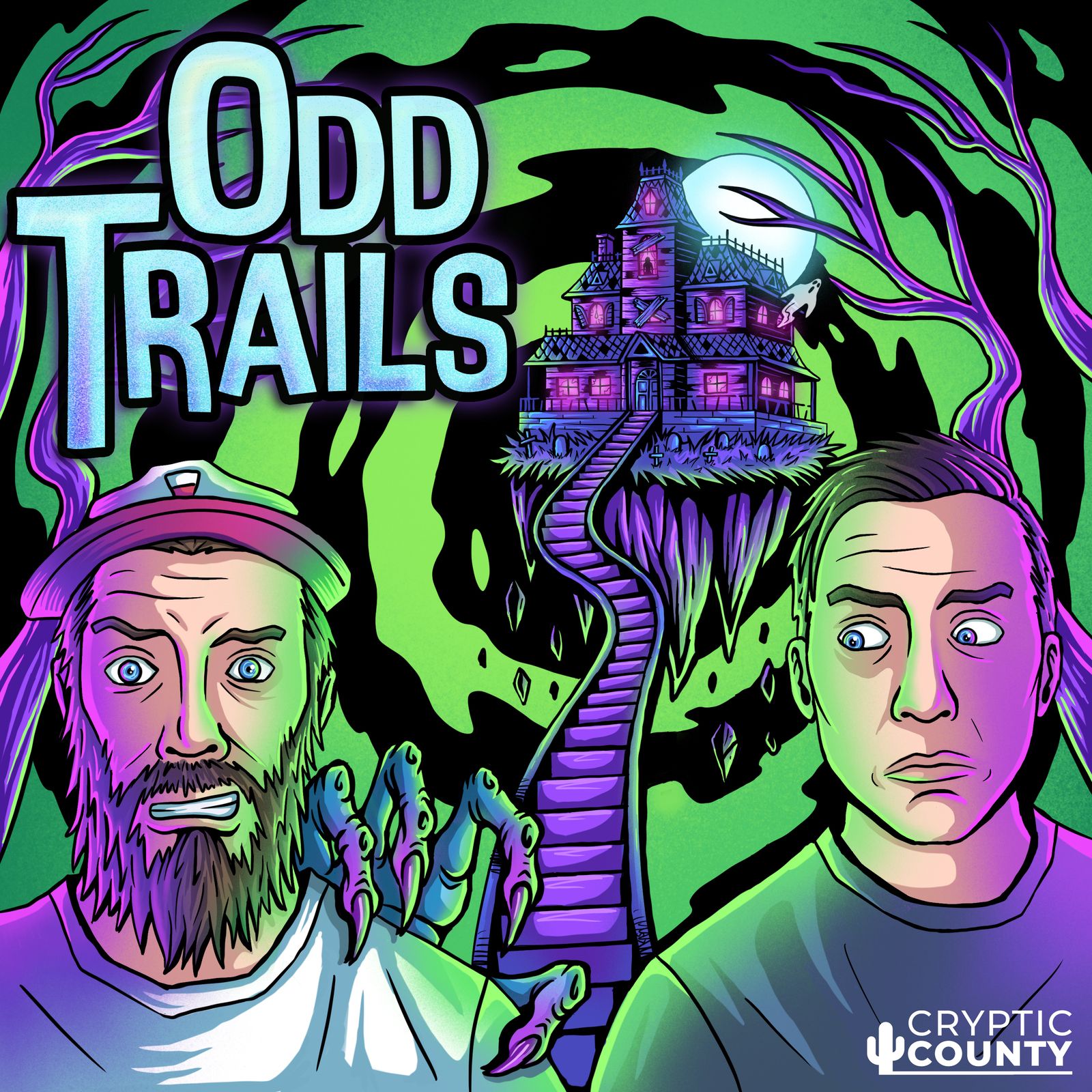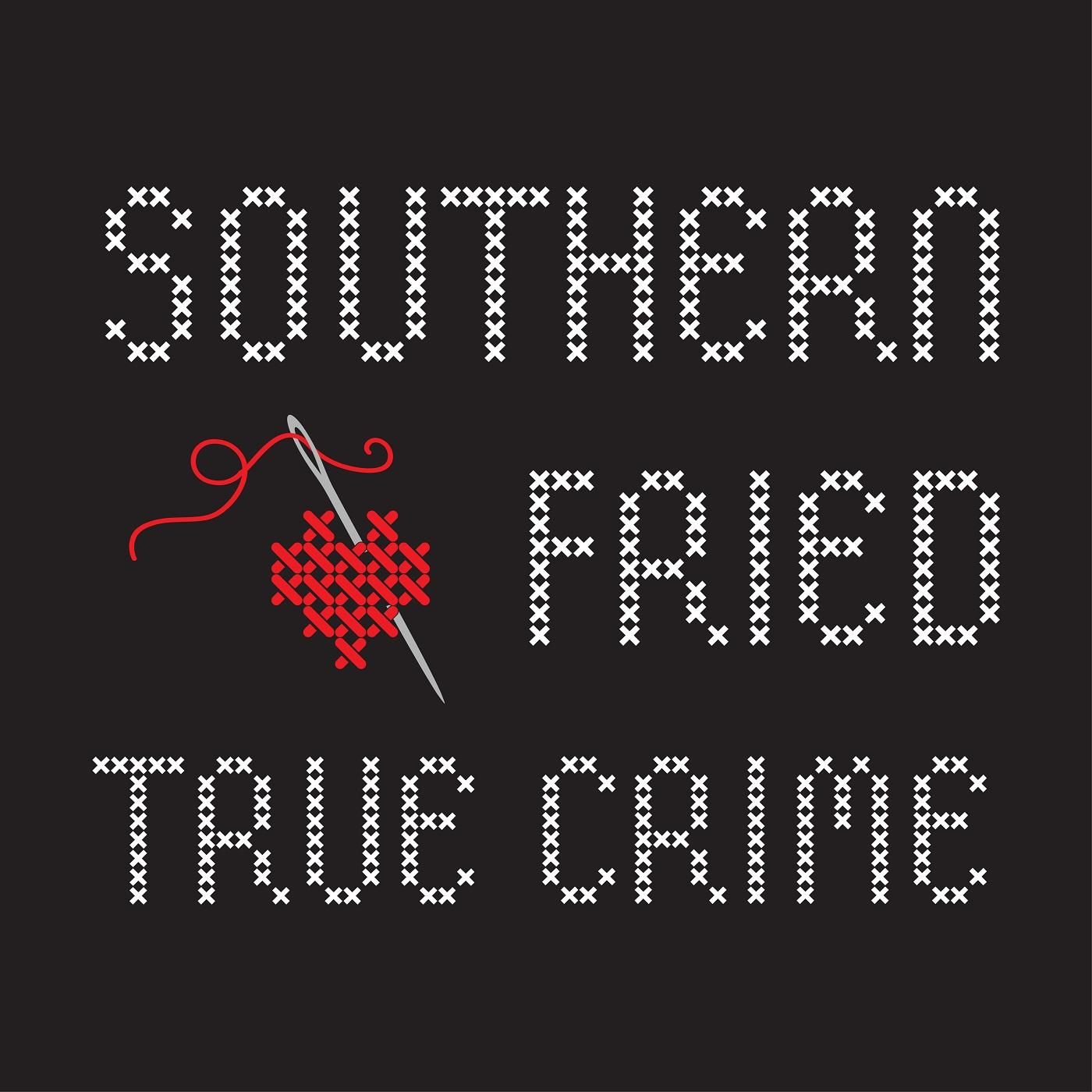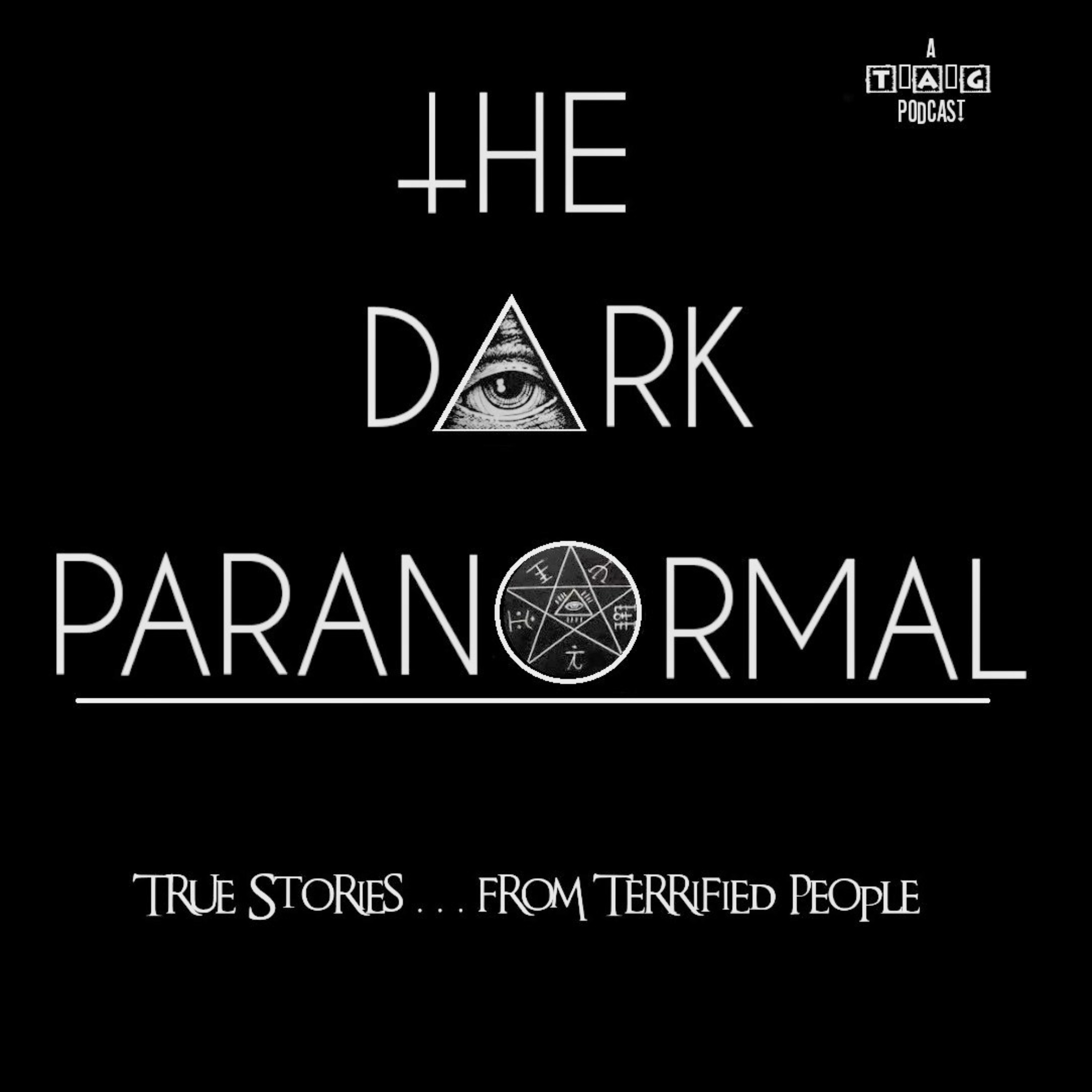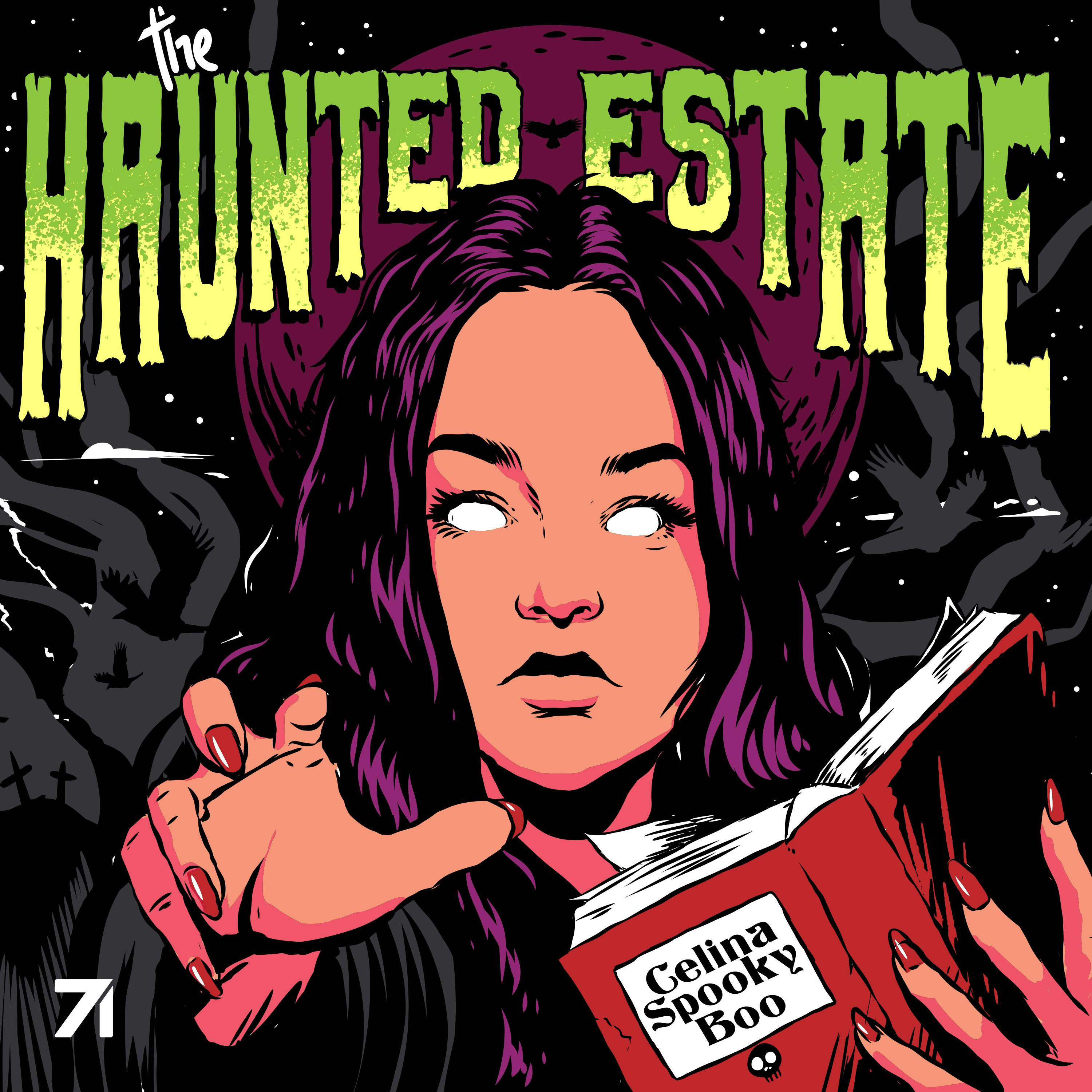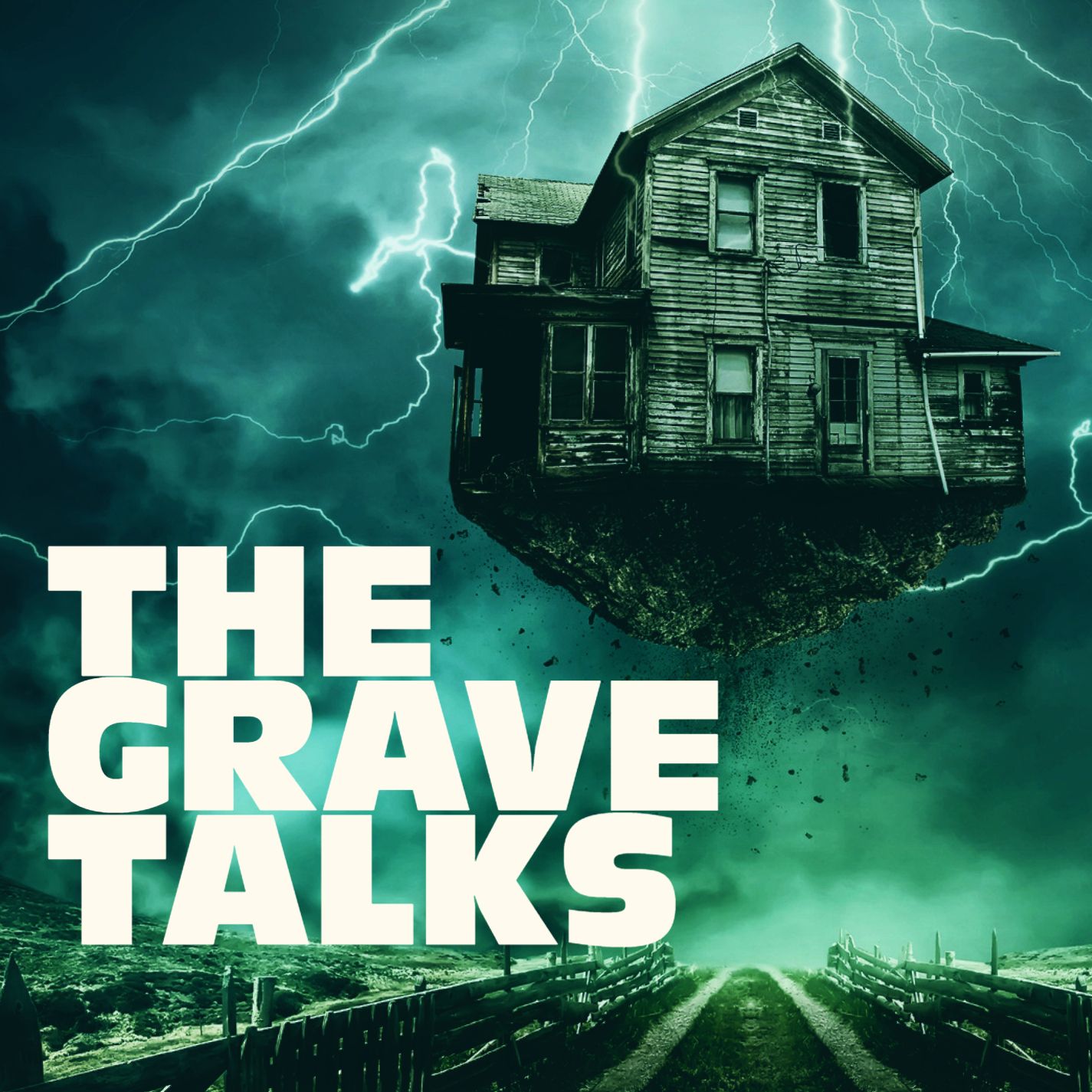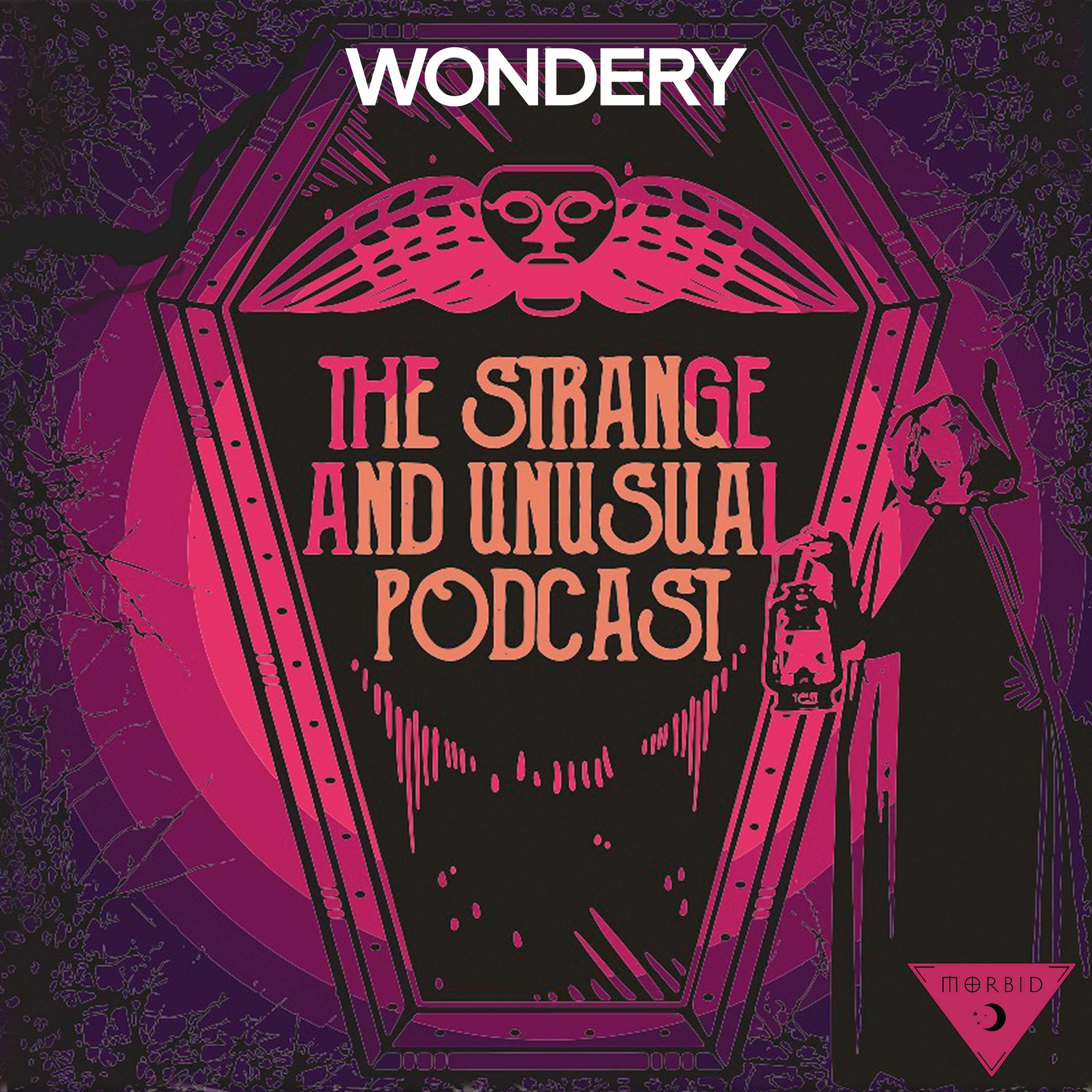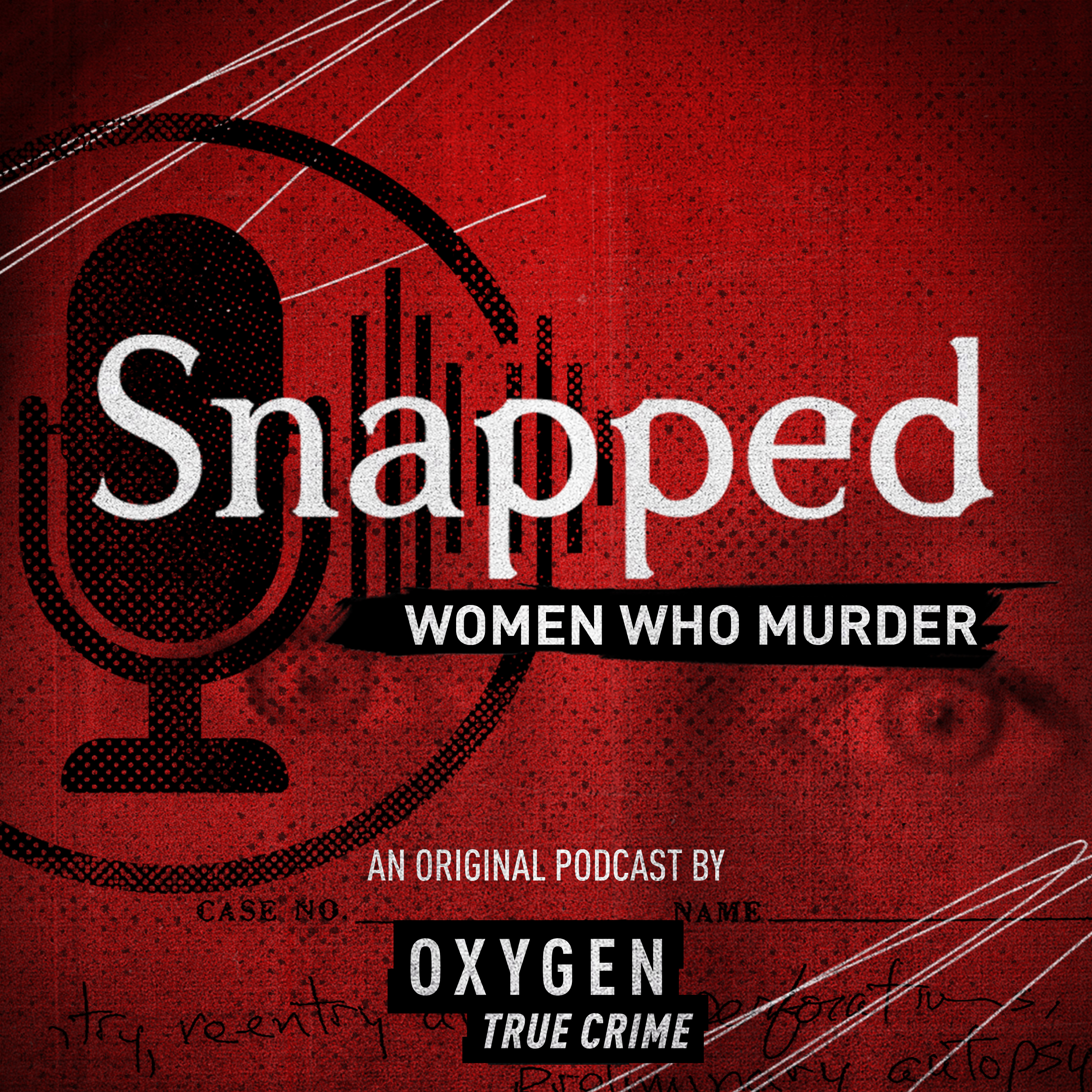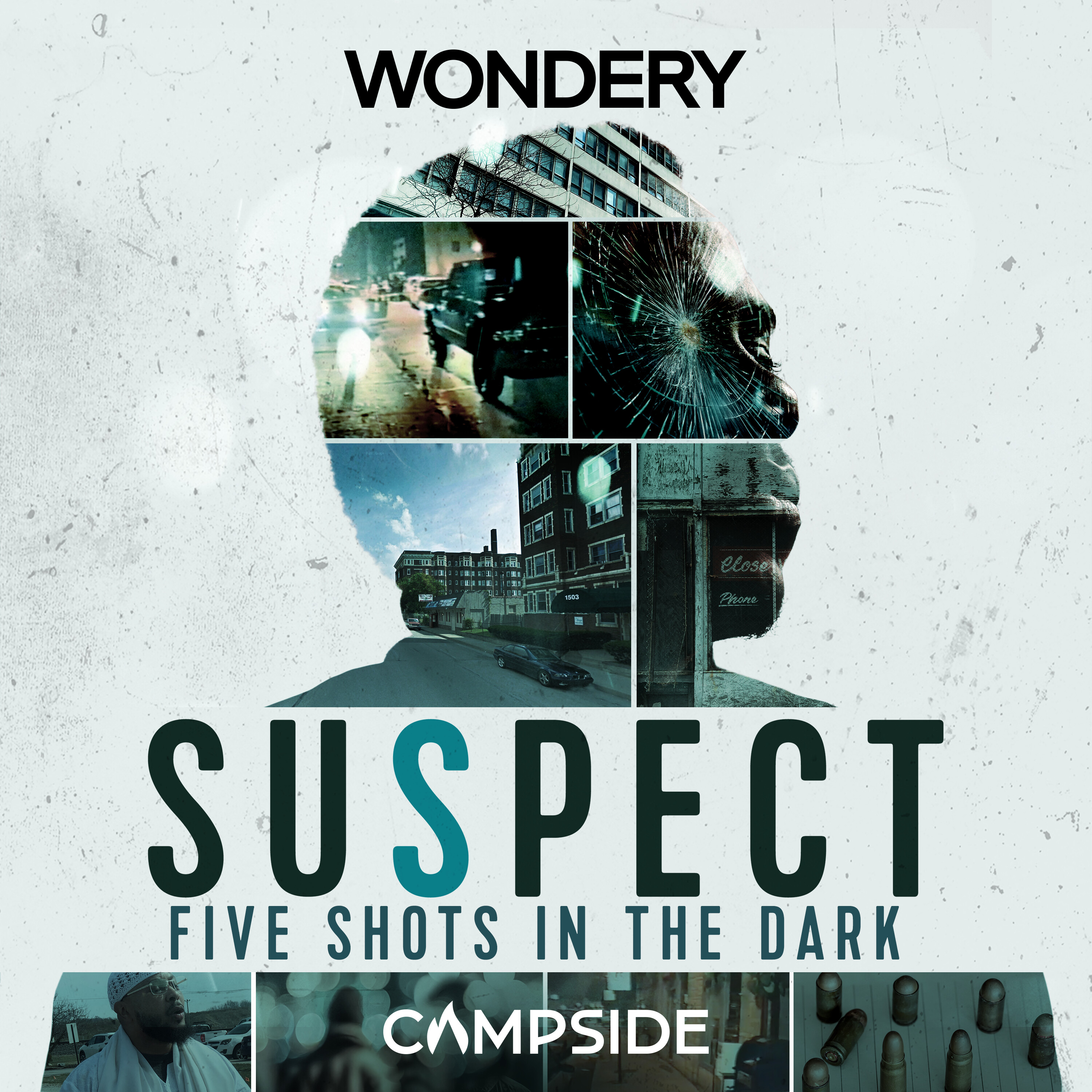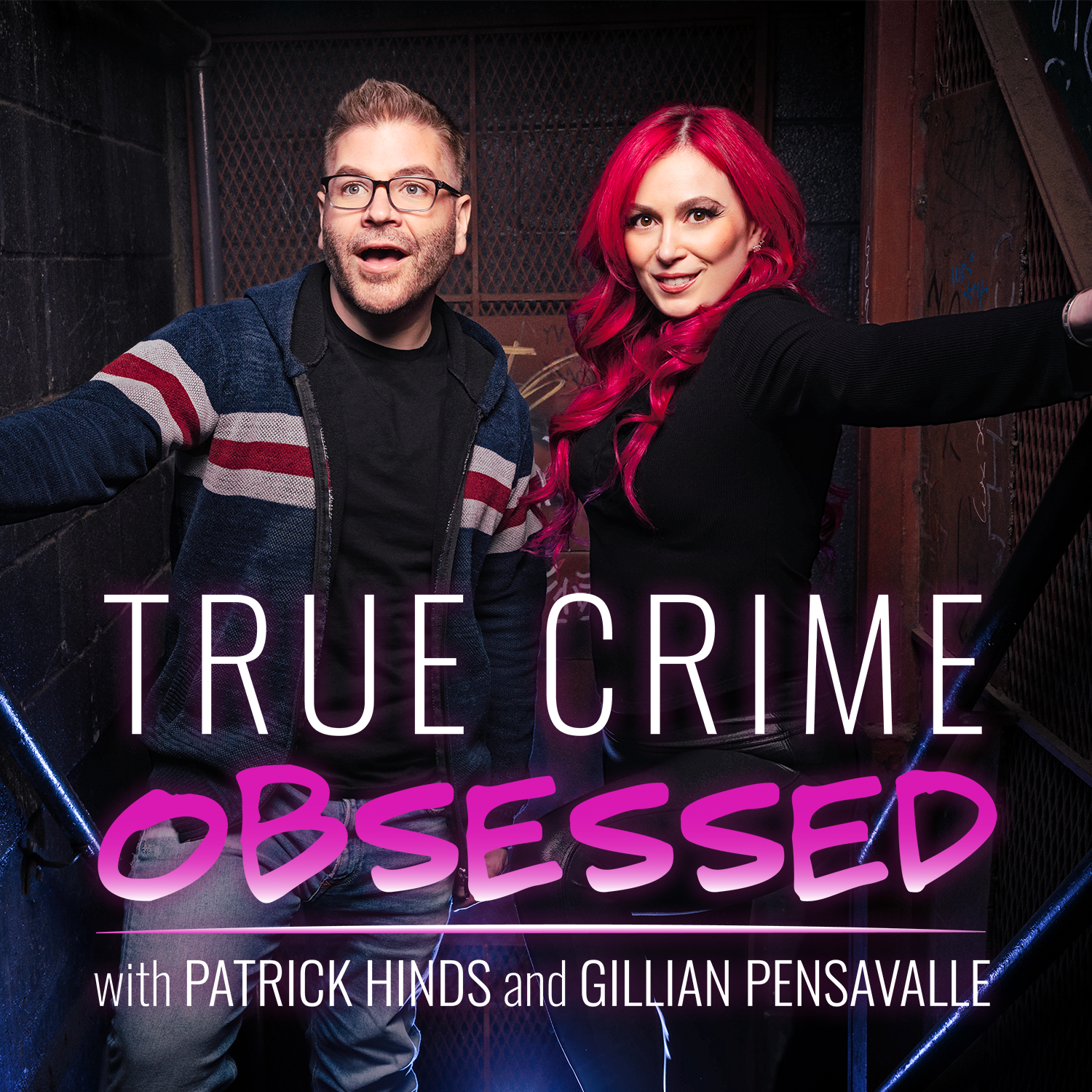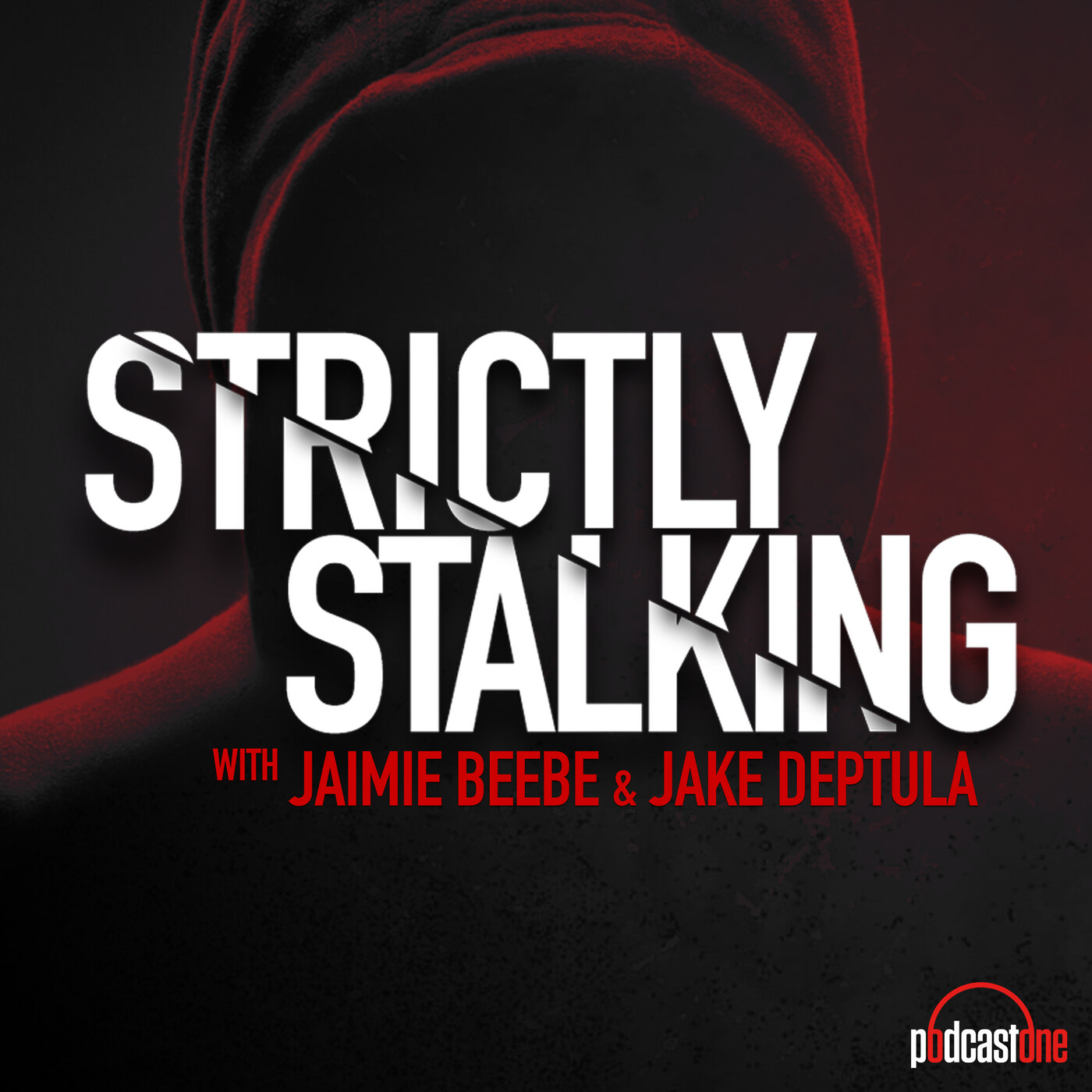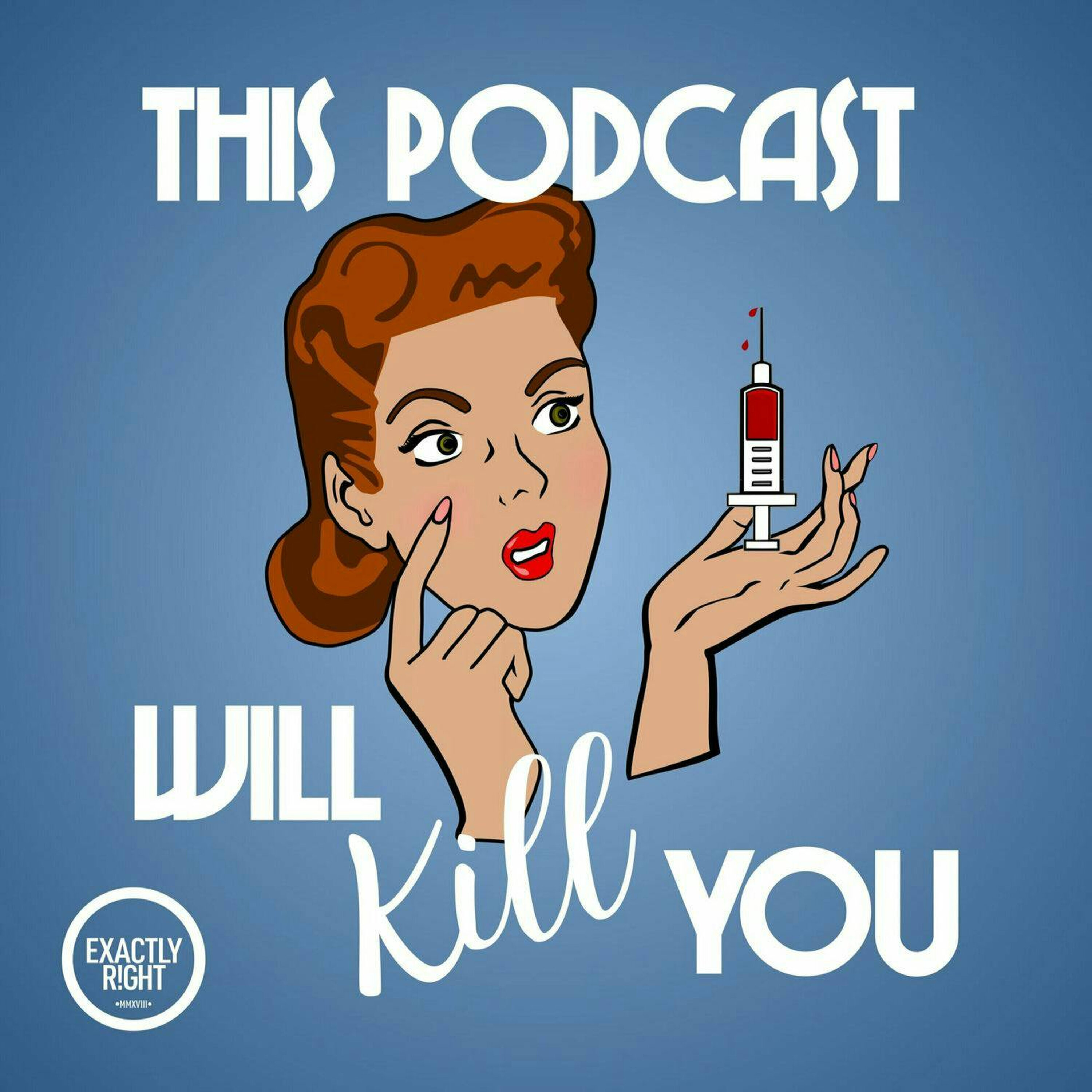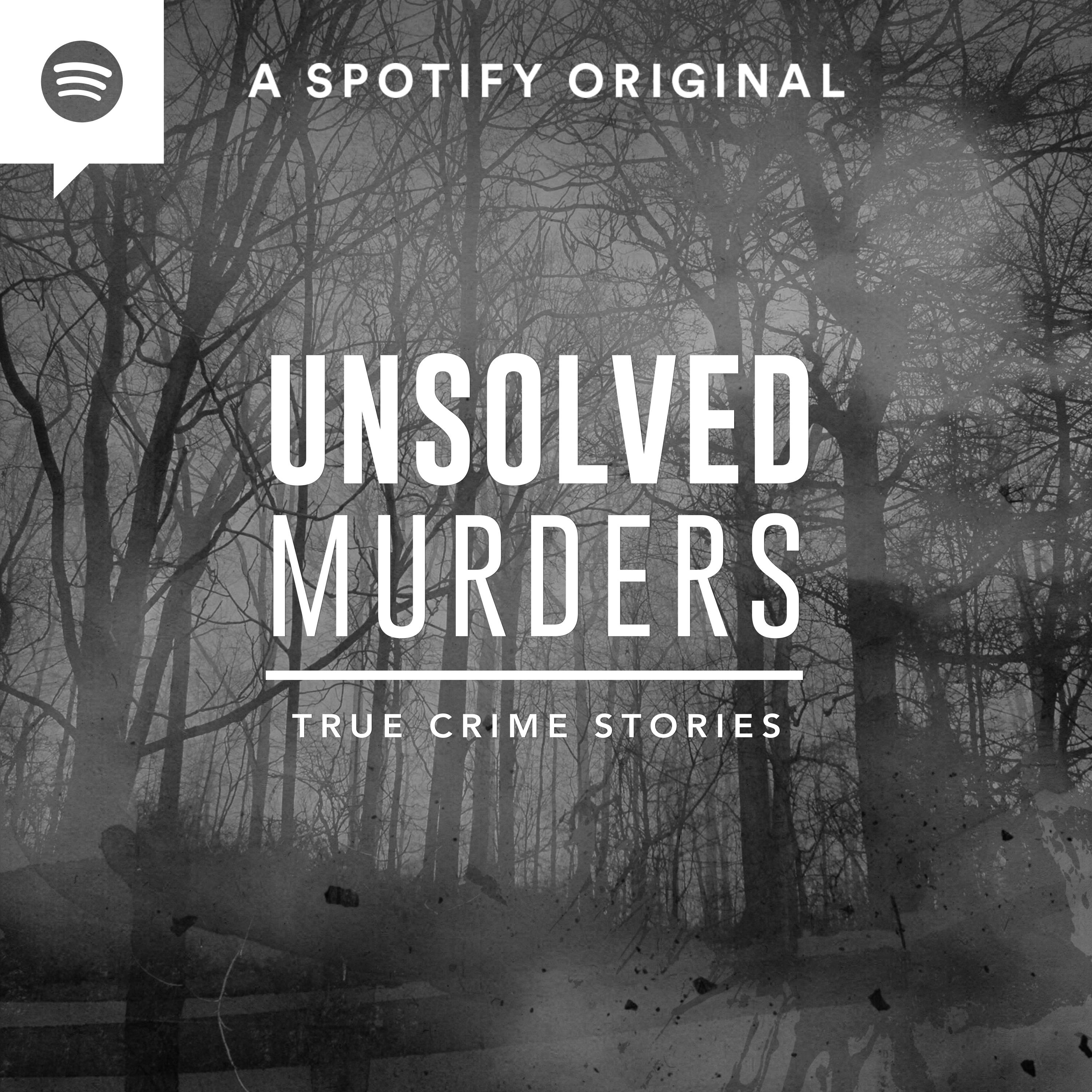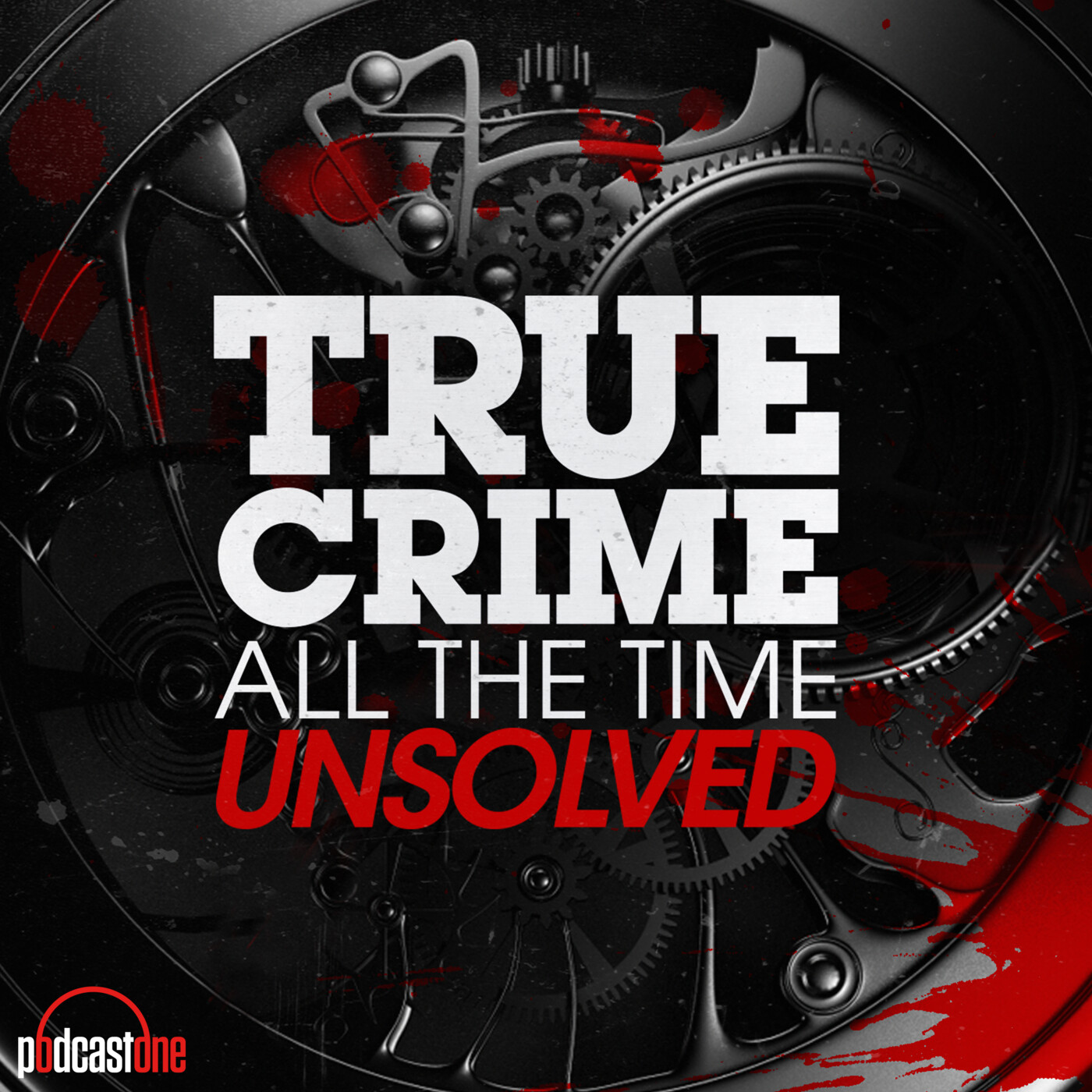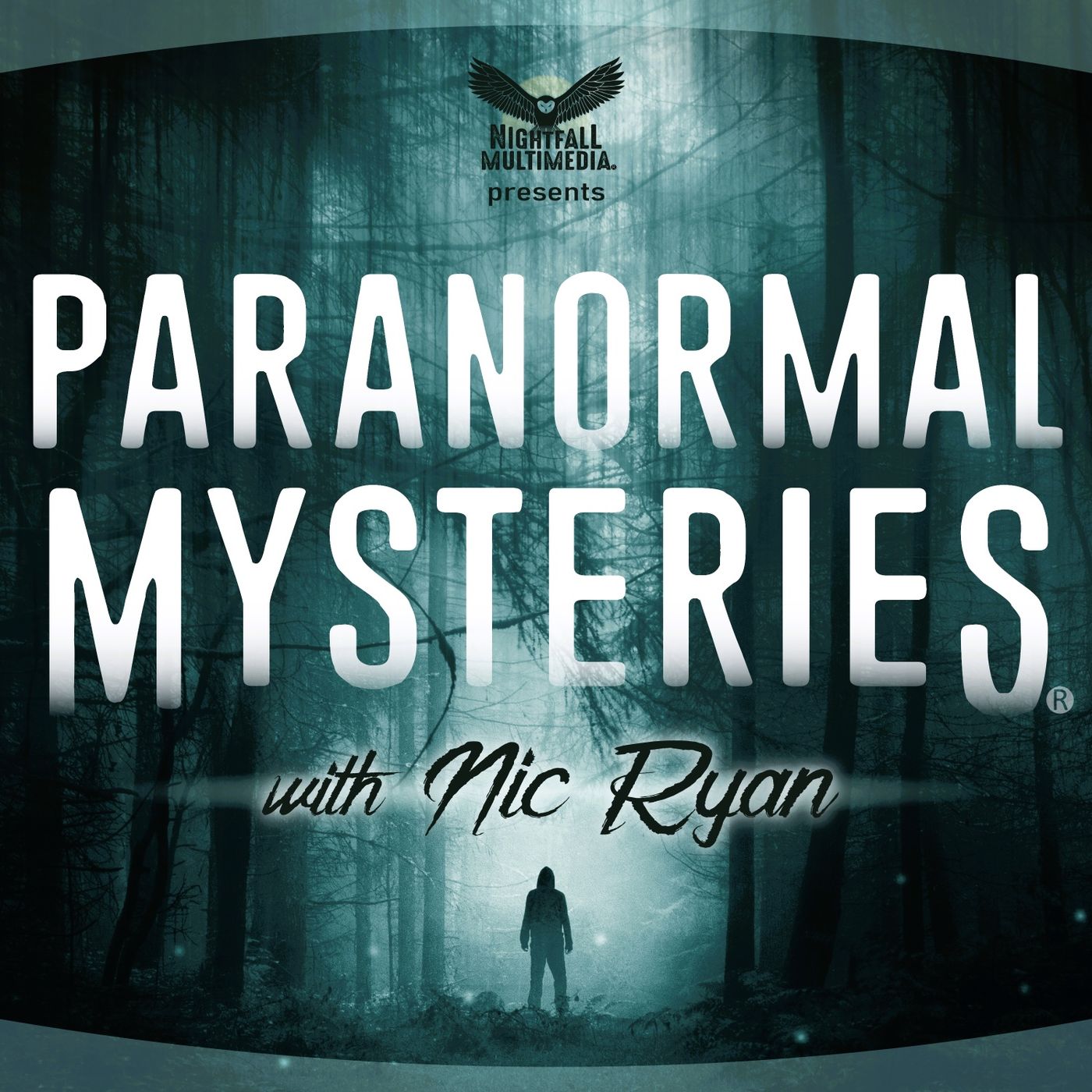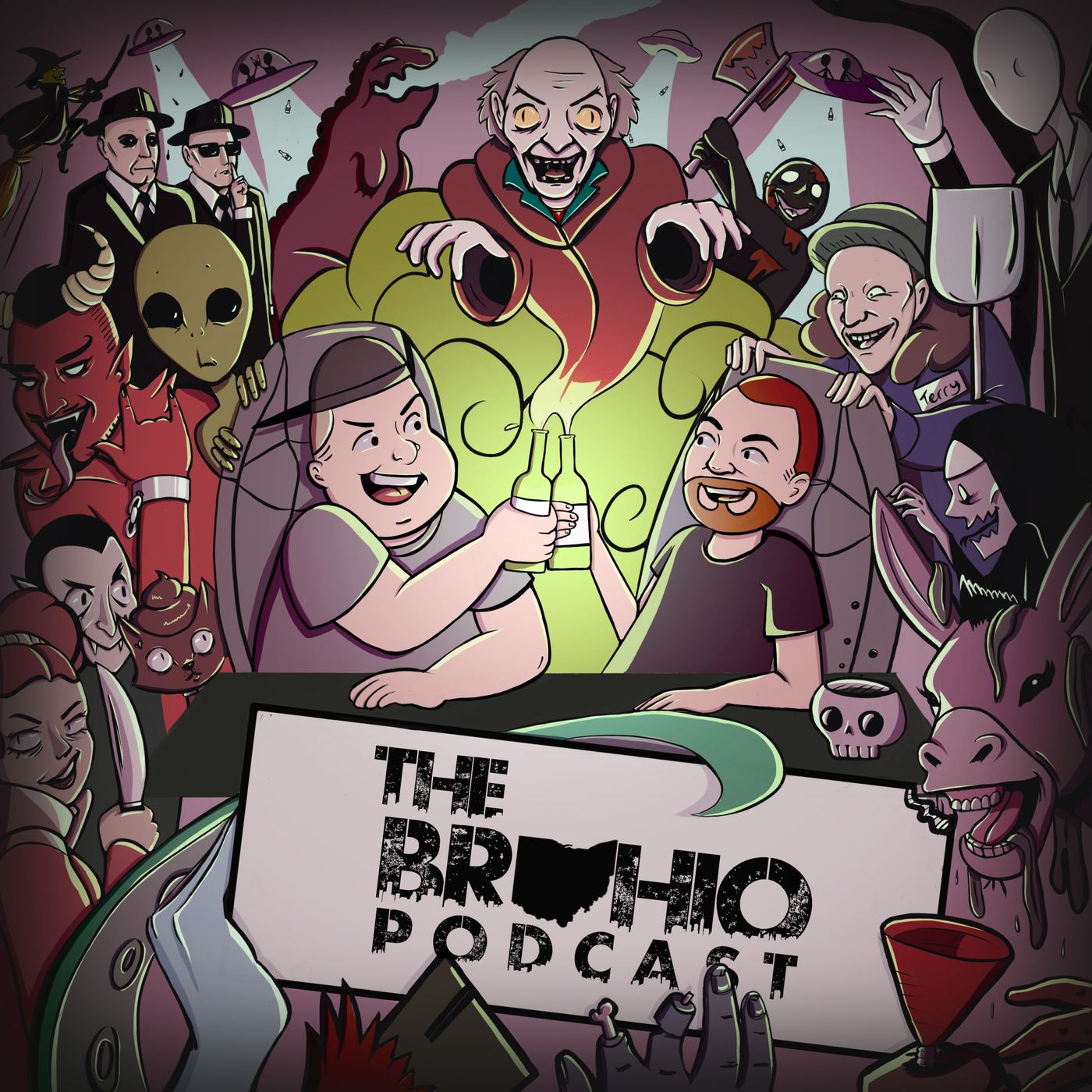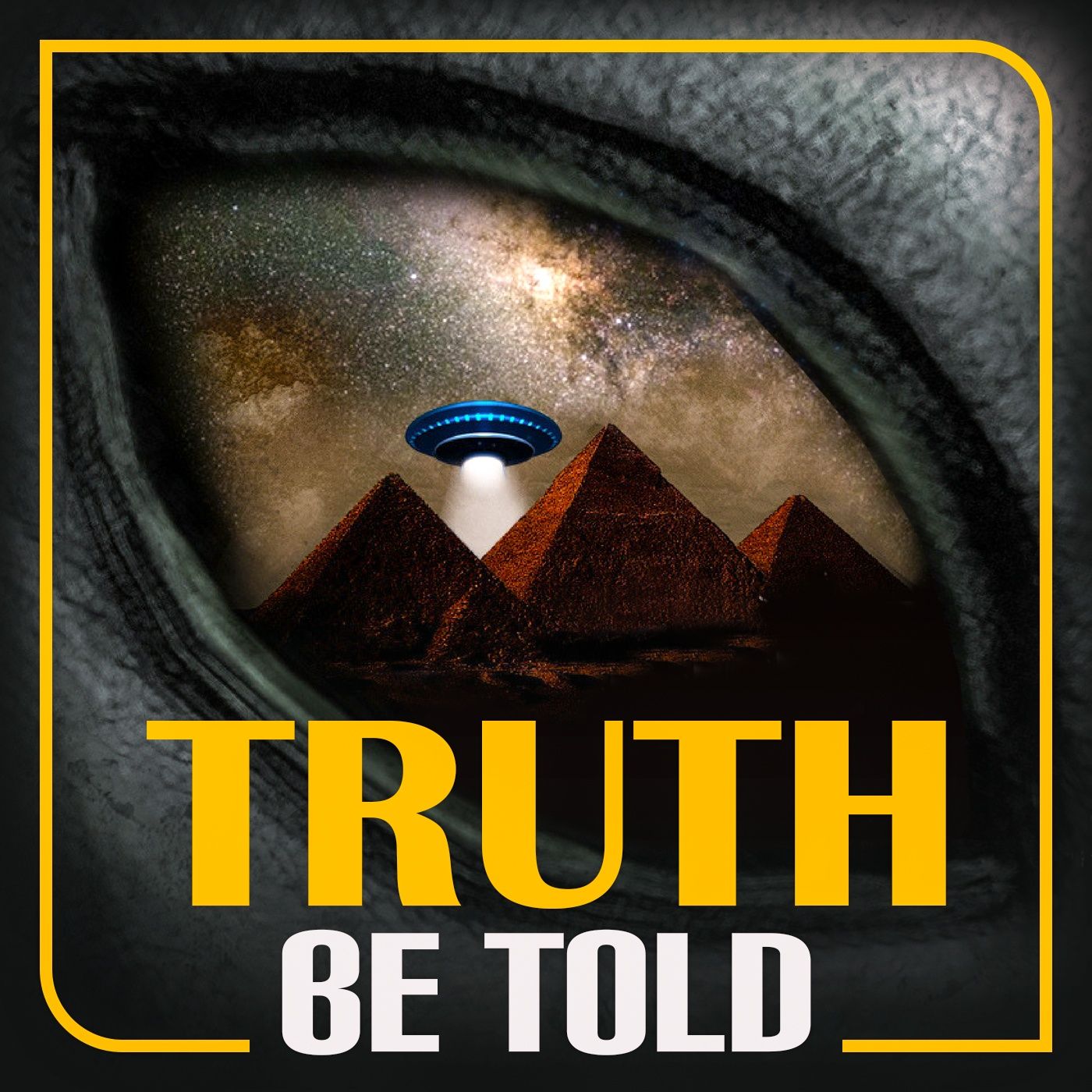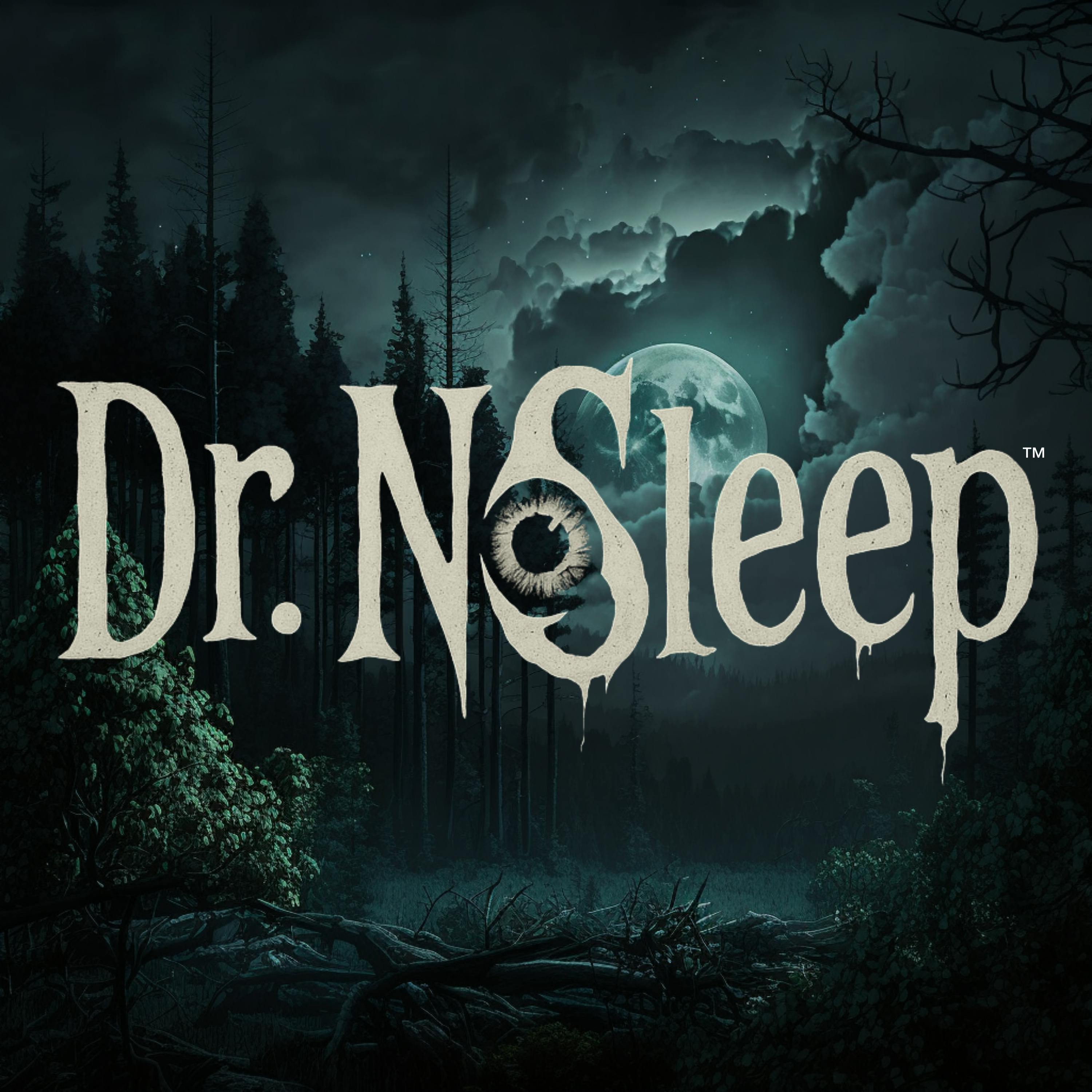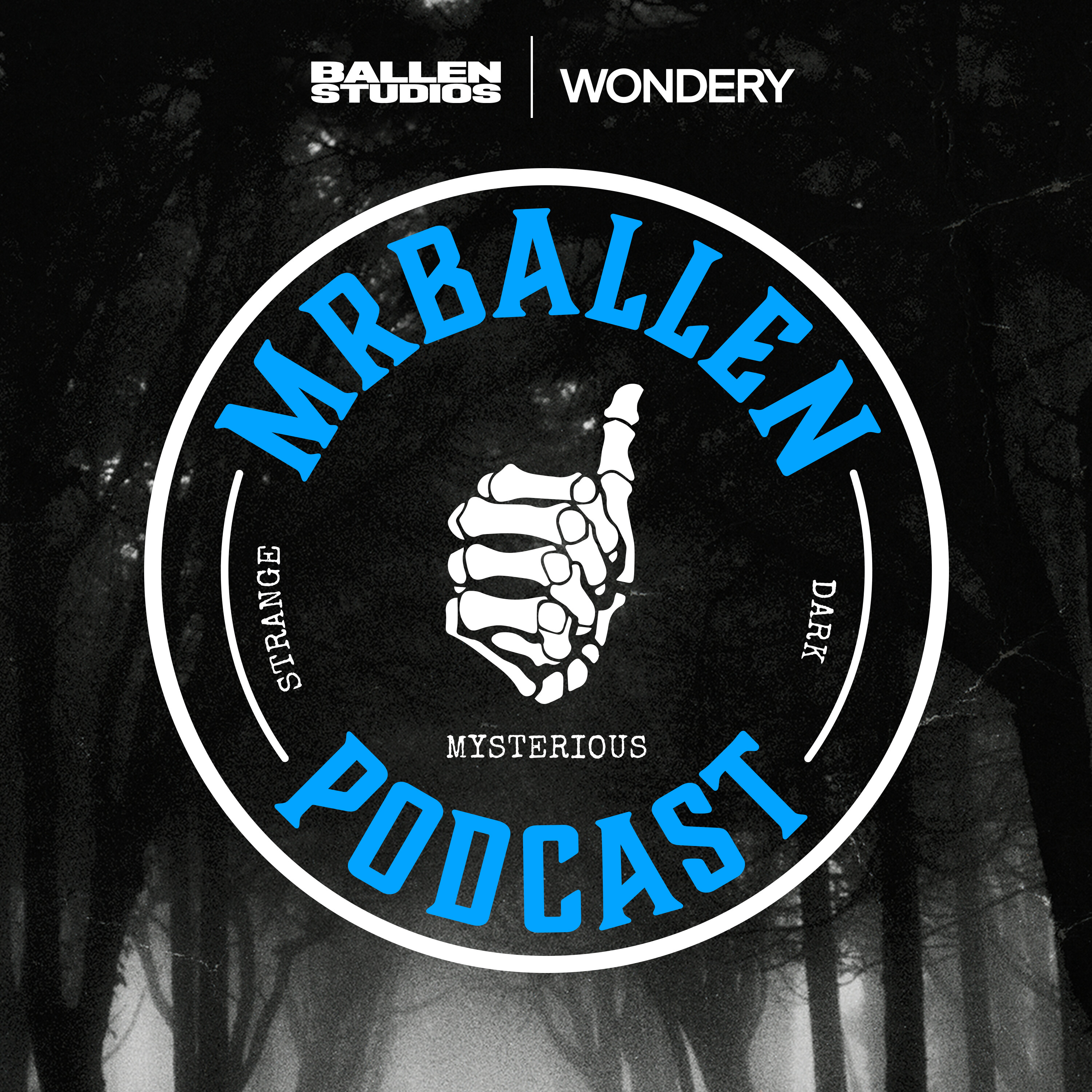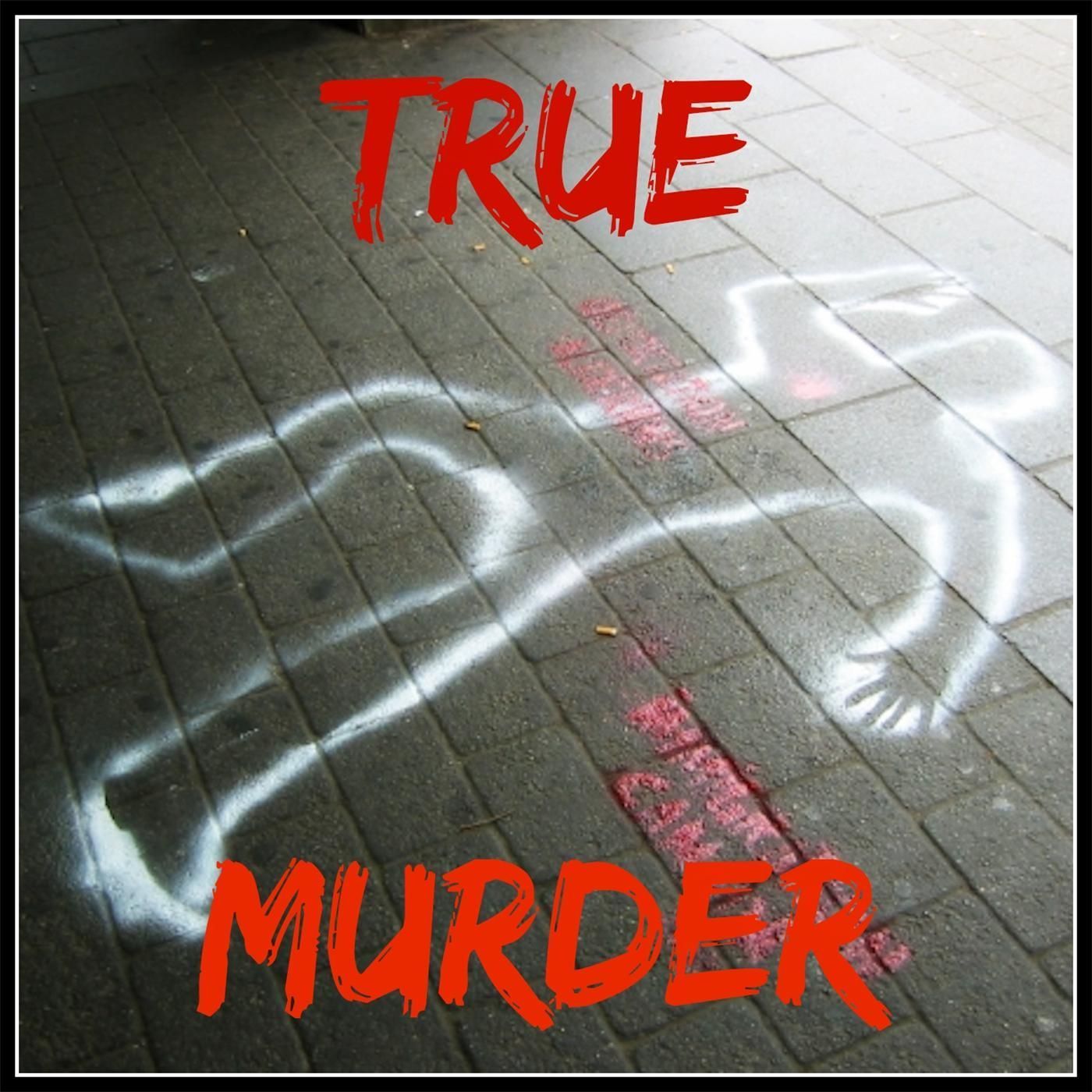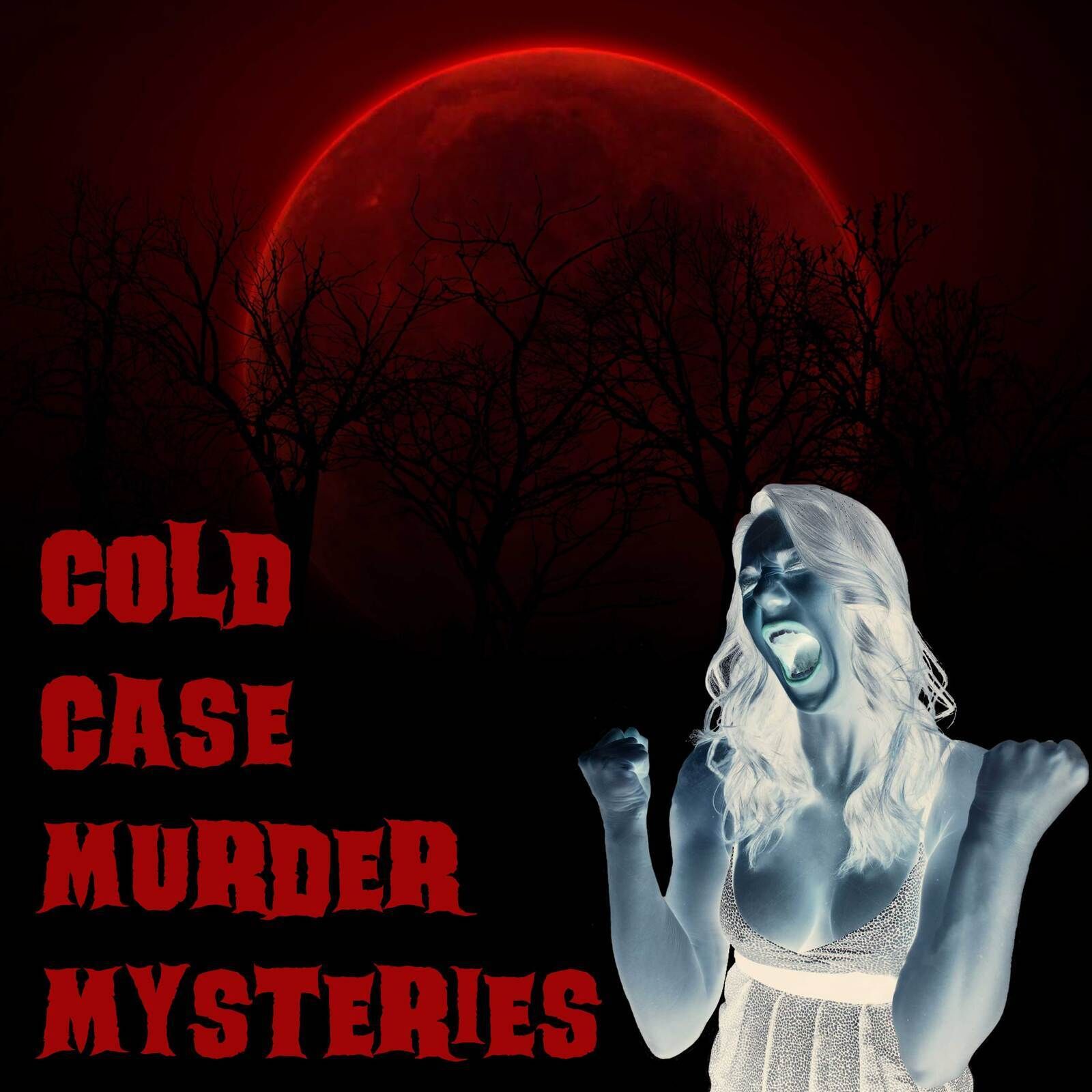
Dark Crossroads
A podcast about all things true crime & paranormal
Welcome to Dark Crossroads Podcast! We bring you gripping stories and intriguing discussions in the fascinating world of the paranormal, true crime and the unknown. We offer a captivating range of episodes that will leave you questioning the boundaries of reality.
At Dark Crossroads Podcast, we pride ourselves on delivering thought-provoking content that keeps our listeners on the edge of their seats. Our episodes explore supernatural phenomena, unsolved mysteries, and unexplained events, providing a unique platform for those interested in the uncharted and enigmatic.
Whether you're a devoted follower of the paranormal or just searching for something off the beaten path, Dark Crossroads Podcast invites you to join our growing community of curious minds. Immerse yourself in our immersive storytelling and engaging discussions, and let your imagination run wild. Check us out at the link below and embark on a journey that will challenge your perception of the world around you. Don't forget to subscribe to the podcast for all bonus content!
Don’t. Trust. Anyone.
Dark Crossroads
Denial And Deceit: The Unsolved Murder of Jon Garner
Jon Garner, a Texas native, was found dead on his 18th wedding anniversary under circumstances that can only be described as enigmatic. The suspects are those closest to him and are both equipped with conflicting alibis. We stumble into a world of mystery where the truth is as elusive as a shadow in the dark. Even the seasoned detectives on the case remain baffled, leaving us all to piece together this puzzling narrative. As we cover this chilling unsolved murder case, only questions linger: who and why? Only you, our listeners, can draw your own conclusions in this perplexing tale of betrayal and mystery.
Resources: Uncovered, Chilling Crimes, CBS News
Paris Rhône
Paris Rhône main products include household items, polishers, and coffee grinders.
Babbily
10% Off Month 1 with promo code dark10
Please send cases you want covered or stories you want read on the podcast to darkcrossroadspodcast@gmail.com. Don't forget to like, share, rate, review, and subscribe wherever you're listening to us. You can subscribe through the link in the episode notes to receive bonus content, discounts on future merchandise, and other extras.
Be Weird. Stay Different. Don't Trust Anyone!
Music. Hey guys, and welcome back to another episode of Dark Crossroads. This is your host, roxane Fletcher, and today we're covering another unsolved case which I know some people hate and some people love. The mystery brings people in and the mystery also drives people absolutely insane, but this is the unsolved case of the murder of John Gardner. I find it very intriguing and I really, really, really, really really want to get to the bottom of this case and find out who done it. But let's just go over the case and let's see what you guys think. If you could not trust your own mother or your own child, who could you trust After a woman's husband is murdered in their own bed the night of their anniversary? A series of wild alibis and a bizarre 911 call leaves a mother and a son pointing fingers and questioning whether the other is lying. In a curious case where evidence suddenly materializes and accusations fly, even the police are puzzled. But will you be With each claiming the other had a motive and the opportunity to pull the trigger? It is up to you to make your own decision on who is guilty and who is innocent, because to this day, this case is unsolved. John Kevin Garner was born on November 1st 1975. He was a native to Texas through and through. In early 2018, at the age of 42, he was working as a general manager for DHL Motors and living quite a happy life, surrounded by his two adult stepchildren, wesley Miller and Andrea Miller, along with his wife of 18 years, sandra Gardner.
Speaker 1:On Tuesday, january 2nd of 2018 at 12 50 pm, may Pearl Police Department received reports of a shooting in the 100 block of Creekview Circle in May Pearl, texas. 55 year old Sandra Garner called 911 and told the dispatcher that her 42 year old husband, john Kevin Garner, had been shot and he needed help. This stated quote she says I need somebody to come. My husband has been shot. I think he's still alive. He's making noises. What can I do for him? The dispatcher walked her through CPR and Sandra followed the instructions until the police arrived.
Speaker 1:When the police arrived at the house, they found a hysterical Sandra. She showed police where John was. He was lying unresponsive on the floor in the bedroom and had suffered multiple gunshot wounds, one of which was to his head. Medical personnel arrived and pronounced him dead on the scene. Sandra was so distraught that she had to be carried out of the bedroom.
Speaker 1:Sandra had made police aware that John was shot by a masked intruder, so they searched the entire house to see if he was still there and, till they're finding there was nobody in the house, sandra agreed to go to the Ellis County Sheriff's office to provide a statement. She told the police that she went to bed with John sometime between 9 30 and 10 pm that night. She explained that this was all normal for them and that most nights they went to bed around 9 30. They were both tired and that night, as they had celebrated their 18th wedding anniversary, which was on New Year's Eve, she told police that she was asleep when she was awoken by a noise. She heard the noise of two gunshots and then saw a man. The man was wearing a mask that covered his entire face except for his eyes. He was holding a gun and a flashlight.
Speaker 1:John had been shot by this point and, according to Sandra, she screamed and asked him not to hurt her. He didn't touch Sandra. He spoke to her, though, and called her by her name and made her aware that he knew both her and John from a previous place of employment. Police asked Sandra, as she recognized the man, but despite seeing his eyes and also hearing his voice and being told that they knew each other. She told police that she did not recognize the man and had no idea who it could be. The only thing she could recall about his appearance was that he was taller than her. The masked intruder informed Sandra that he was a former employee of John's from WePAC years earlier. Police discovered that John was a hard worker and if anyone wasn't working hard enough he would fire them. Sandra told police that the man seemed annoyed that, even though he had worked hard and had worked his butt off quote-unquote John fired him and that resulted in him losing his home, his wife and his children. This man had nothing left to lose, but he assured Sandra that he wasn't there to harm her. When she began screaming, he told her to shut up and he said quote, what I came here to do is done. I didn't come here to shoot you.
Speaker 1:The man told Sandra that he knew there was money in the house because John bragged about keeping cash there and he wanted this money. Sandra told police that she went into the bathroom where the fire safe was and gave him all the money that was inside of this safe. When asked how much money was inside, sandra said that she believed it was about $18,000, as she had recently counted it, and that was what was there at the time of counting it. Police then continued to ask Sandra to outline what happened next, and she notified him that he told her to remain in the bathroom and count to 100. He threatened to return and kill her if she called police or if he heard sirens in the background. He did as she was told and started counting and then ran into the bedroom where John was and ended up calling 911.
Speaker 1:Police obtained a search warrant for the house and their cars. They found a bullet and a pillow case inside of the bedroom, and another one was found in John's body while he was at the Dallas County Medical Examiner's Office when his autopsy was being carried out. Both of the bullets were from a.38 caliber and when police searched the house and car, that gun was not found. Police discovered that John had some 49 guns, including 12 rifles, in the house, but one happened to be missing. And what do you think? It was A.38 caliber. Of course, police looked into John's past, from friends to former colleagues and employees, and questioned a number of them, but it didn't find anyone that they thought could be a suspect. Police decided to search the house and cars a second time, and it was during the second search that they found the Taurus.38 Special Revolver, and tests carried out on the gun and the projectiles confirmed that this was the gun that was used to shoot John. It was hidden in a paper towel, inside two plastic bags, under the seat of Sandra's Ford Mustang car, which was parked in a detached garage. Police believe that it was hidden there after the first search was carried out. They also discovered that John had given that gun to Sandra.
Speaker 1:Now, at this point in our story, I want to go over the analysis of Sandra's 911 call. It was looked over by somebody who looks at the wording and pronunciation of 911 calls and detects if there's deception or if it is truth. So it starts with a dispatcher saying 911, what is your emergency? Sandra says I need somebody to come, I need the police, I need an ambulance, my husband's been shot. It is stated here that guilty callers often ask for help for themselves, not for the victim. Note that Sandra does not ask for help for her husband. Instead, her priority is somebody the police and an ambulance for herself. She says my husband's been shot. This is passive language. Passivity shows distance and is often used to conceal identity or any responsibility. At this point the dispatcher states okay, what happened there? Sandra is stated there was a man in here and he shot him and he told me not to call the police. In the analysis, it states that there was a man in here is One, it sounds like the beginning of a fairytale. And two, it goes against the economy of words. There's no urgency in her saying this. And three, it helps her slow down the pace.
Speaker 1:Guilty callers often seek to mitigate their stress by delay the pause of her going. Um, uh, she has the need to pause and think of an answer. It shows that the question is very sensitive to her. The first and is an unnecessary word and it represents a bridge between two periods of time, maybe because somebody is withholding any information. Now the dispatcher says and do you know where the male subject went? And Sandra states no, I was in the bathroom and he told me to sit down and count to 100 and not to call the police until I got to 100. He said that if I call you all Before I reached 100, he'd come back and he'd kill me. Please hurry, I think he's still alive. He's making noises. Please, what can I do for him At this point?
Speaker 1:In the analysis it states that she doesn't just answer the question, but she preempted a question, adding to her no 64 words in order to justify the delay with which she had called 911. She doesn't show any urgency. She takes precious time to give the operator unnecessary information. Please hurry and please show some need to align herself with the good guys, meaning the operator and the police. This is a factor known as manipulation. She didn't ask what can I do for him as a priority in her first answer, but only at the end of her narrative. It's unexpected that in her narrative she never used her husband's name in the pronoun we. That shows unity and cooperation.
Speaker 1:At this point the dispatcher even asks do you want to try to do CPR? Sandra responds yes, yes. Note that yes is repeated. Does she have a need to align herself with the operator and to convince them that her desire is to actually help her husband? Then the dispatcher says I need you to lay him flat on his back on the ground and remove any pillows. Sandra says on the ground. You want me to get him off of the bed? Dispatcher yes, ma'am, if possible, we need to try to do some compressions. Sandra says okay, okay, he's on the floor Again. This is another repeated word, saying okay, okay. This is her trying to align herself with the operator again and convince him that her desire is to help her husband.
Speaker 1:The question at this point, while this whole communication is being analyzed, is why does she find it so important for them to think that she is innocent? The dispatcher at this point states one, two, three, four, trying to help her keep track of CPR. So Sandra says one, two, three, four. One, two, three, four. Should they be here? The dispatcher says they're on their way, ma'am. Now the whole point of this reading the 911 call and the analysis is to conclude that there was deception indicated throughout the 911 call. In conclusion, the examiner put a note at the bottom, under deception indicated, stating that she has guilty knowledge of what happened to her husband, john.
Speaker 1:Now at this point, back to the story. When they found the gun under her car seat, she was eventually arrested and charged with murder. Her bond was set for two million dollars, which she obviously could not pay. Thus, for a year and a half until her case went to court, she remained behind bars, even though in the state of Texas, a prosecutor doesn't have to prove there was a motive. Jurors like to hear about a possible motive, as it puts things into place for them and it creates a story that's easy to follow in their mind. In Sandra's case, the prosecution couldn't find any plausible motive.
Speaker 1:Sandra was a twice-divorced mother of two when she met John at a packaging company where they worked in Paris, texas. She was 13 years older than him, but they got on well and John was more than willing to help raise her two children, wesley and Andrea Miller. They married two years after they met in Las Vegas on New Year's Eve. Life was good for many, many years until Sandra was diagnosed with multiple sclerosis in 2014. That made things difficult for them, and Sandra was depressed due to the medication she was on. John was more than willing to take care of her, though, because he loved her, and he became the sole breadwinner and her caretaker. In 2016, they moved from Paris to May Pearl to be closer to their families so that they could also get extra care and support if they needed it. John's father and his stepmother lived just across the street from them. John got a job in May Pearl as a general manager at DHL, and Sandra relied on him for financial support and care.
Speaker 1:The question that the prosecution had to try to answer was why would Sandra want John, the man who provided for her and looked after her, dead? The prosecution couldn't answer that by the time the trial began, but they believed, regardless of that, that they had a strong case based on cold, hard facts. It was their case that Sandra was the only person who could have killed John that night and that the evidence indicated she was the only person inside the house when John was shot. When the police arrived on scene, there was nobody else in the house except for Sandra and John, and eventually the court heard that gunshot residue was found on Sandra's hands and the murder weapon was found hidden under the seat of her car. The prosecution told the jury that they believed the murder was planned and they produced into evidence reports which outlined that internet searches were carried out on Sandra's iPad just four days before John was shot, and the searches included how to kill someone in their sleep, 16 steps to kill someone and not get caught and, lastly, fentanyl.
Speaker 1:The prosecutors in the case, lindy Beatty and Ricky Sypes, asked the jury to think about Sandra's version of events and the evidence found and to establish what makes more sense. The murder weapon was a gun which had been given to Sandra by John, and it was found in her car. The prosecution asked the jury to consider this fact of them finding the murder weapon, and all this in light of the version of events that Sandra gave the police. She said that a masked intruder was inside their home with a flashlight and a gun, and he told her he wouldn't harm her, as he already did what he wanted to do. The prosecution asked the jury to consider if it was likely that a masked intruder, who had a grudge against John and wanted him dead, entered John's house without his own gun or a weapon of any sort and instead decided to use Sandra's gun. Lindy asked the jury to think about how nonsensical it would be for the killer to do such thing. Lindy also asked them to question why the killer would wear a mask to conceal their face but decide to have a conversation with Sandra and tell her why they were there and that they used to work for John. Lindy then says damn it, I forgot the gun. I wore my trusty mask so no one would know who I was, but I'm going to have a 10 minute conversation with Sandra about who I am and why I'm doing what I'm doing. The prosecution told the jury that the only explanation was that Sandra shot her husband dead.
Speaker 1:It was the defense case that, despite the evidence the prosecution presented, there were a number of gaps that meant that there was a reasonable doubt in the case. The court heard that Sandra loved John and didn't want him dead and that she was set up. It was their case that the police mishandled the investigation from the very outset and that resulted in contamination and evidence not being collected properly. The court heard that the house wasn't sealed off. People were allowed to enter and exit as they pleased. Footage from police cameras that night revealed that the lead investigator took multiple photos of the inside of the house to use as evidence, but somehow those photos went missing, something that the police acknowledged but had no explanation for.
Speaker 1:The defense attorney, thomas Papaz, told the jury that he believed that the police overlooked a possible suspect in the case. They believe that Sandra's own son, wesley, may have shot John. They have argued that he had a motive Wesley needed money and they believe that he mistakenly thought that he was in John's will and he wanted his money. They told the court about his actions in the immediate aftermath. When police spoke to Wesley, he seemed almost keen to blame Sandra for the murder. He told police he didn't buy her story and asked them if an intruder had indeed entered, then why didn't the dogs bark? He is quoted as saying the dogs, why didn't they bark? How did so-and-so know how to get in? And for somebody to sneak up on him like that, I don't buy it. It was Wesley who told police that Sandra often kept a gun under the driver's seat in her car, which was what prompted the second search of the car. They argued that, due to the police mishandling the case, proper tests and checks weren't carried out which could have showed that Sandra was innocent. The handle of the car door was not tested for fingerprints.
Speaker 1:The court heard that Wesley was in John's home on the 1st of January, just hours before he was shot, and that he didn't have a solid alibi for the time of the murder. The court heard that he was the last person, apart from Sandra, who spoke to John and he left his house at 7 pm. Police initially believed he had an alibi, as he told them that he purchased beer and went home to watch Netflix on his phone. When they checked his Netflix account usage on his phone, though police believed that it looked as though he was watching it at the time of John's murder, but that was a mistake. The records weren't recorded in central standard time, so there was nothing to suggest that he was watching Netflix at the time that John was shot. The defense also argued that Wesley may have been the person who carried out the internet searches on the iPad a few days before John was shot. The court heard that the iPad wasn't locked and there was no password required to use it. Wesley had access to it and was in John's house the night that the searches were conducted. They were carried out four days before the murder, between 11 30 pm and midnight, and Sandra and John nearly always went to bed at 9 30 pm.
Speaker 1:The defense acknowledged that gunshot residue was found on Sandra's hands, but they claimed there was an innocent explanation for this. Sandra's attorney, tom Papa's, told the jury that Sandra was in bed with John when he was shot. Then he brings up that she did do chest compressions when she was on the 911 call, as the dispatcher's instructions told her to do so, so it was inevitable that there would be some gunshot residue on her hands. This does explain that theory. There were three specs found on her left arm and they argued that was not consistent with her firing a weapon. It was their case that the prosecution didn't prove her guilt beyond a reasonable doubt and they asked the jury to find Sandra not guilty. The prosecution in their closing told the jury that if Wesley killed John, that version didn't make sense, as Sandra told police that she didn't recognize the masked man, even though she saw his eyes and spoke to him. The police acknowledged that things were not conducted as they should have been. They acknowledged that perhaps Sandra's hands should have been bagged immediately and more gunshot residue may have been found on her if that had been done. The jury deliberated for just three hours and they found Sandra not guilty.
Speaker 1:Wesley was never charged with any crime in relation to John's death. Now, to this day, nobody has been charged with the murder of John and it is still an unsolved case. But there are many speculations as to what happened that night. Many believe that Sandra is guilty of this crime and they just don't know the motive or the whole story of events, and others believe that it was Wes, her son, that he was trying to frame her and get half of her possessions, including money, house, car, etc. He even knew where the murder weapon was and pointed police towards it to try to frame his mother. This is what people are suggesting, but in all, it is unsolved.
Speaker 1:Alright, weirdos, thanks for hanging out again today. I just want to thank everybody for all your continued support and if you want more content or extra episodes or bonus stuff, don't forget to subscribe to my bonus channel. And also don't forget to like, rate, review, do all the things. It really helps me out and it's helping the podcast grow and get more content out. Um, with all that said, I will be coming back soon with another episode, but until then, don't forget to be weird, stay different and don't trust anyone. Dark Crossroads Podcast is brought to you by Problem Wildlife. Problem Wildlife serves all of western Massachusetts and has been humanely protecting your house and your family from unwanted pests for over 20 years. Take back your space with an animal control service that you can trust. They are family owned, fully licensed, and are knowledgeable and dependable. To find out more about their services, simply visit their website at wwwproblemwildliferemovalcom. Again, that is wwwproblemwildliferemovalcom, and their information will be included in our show notes. Thank you for watching.
















